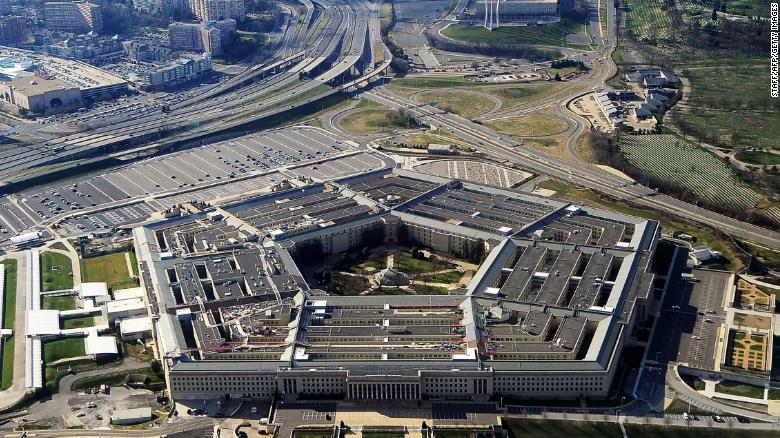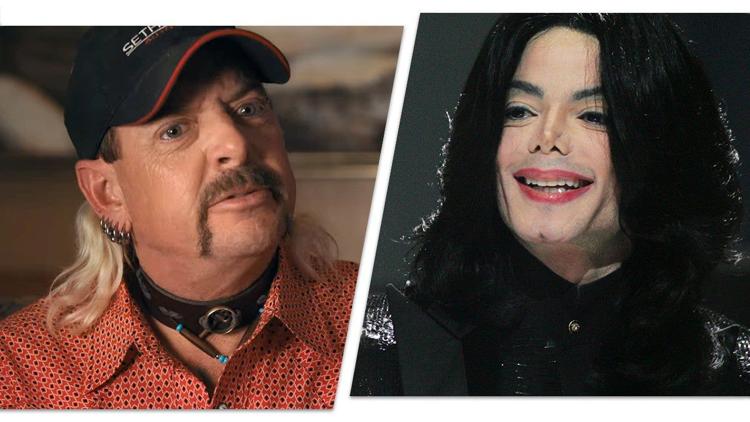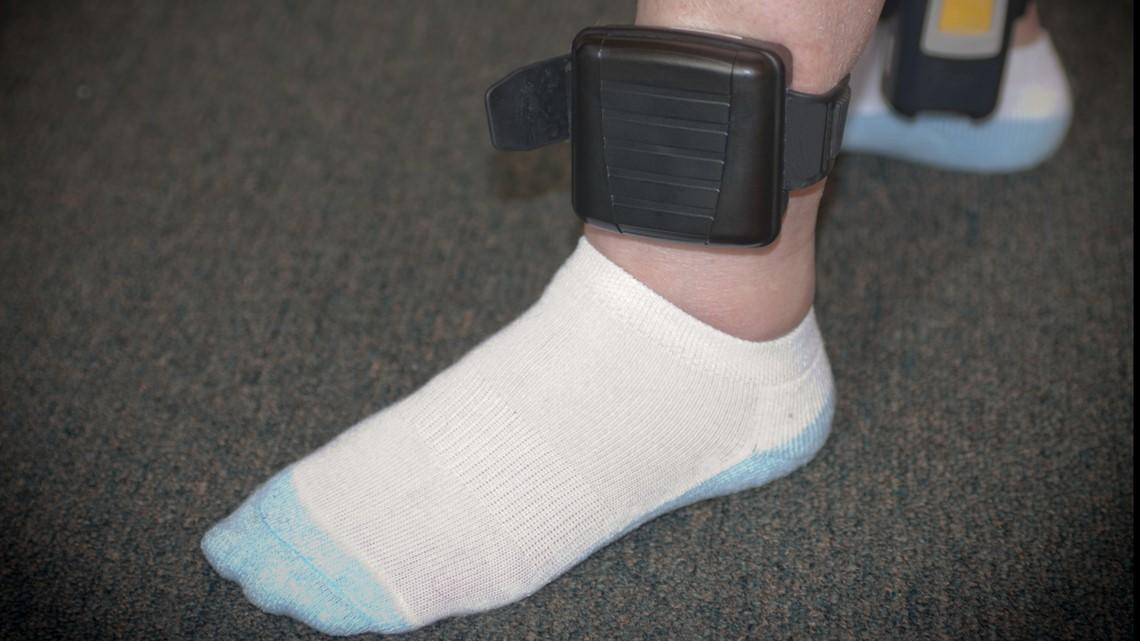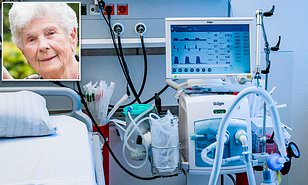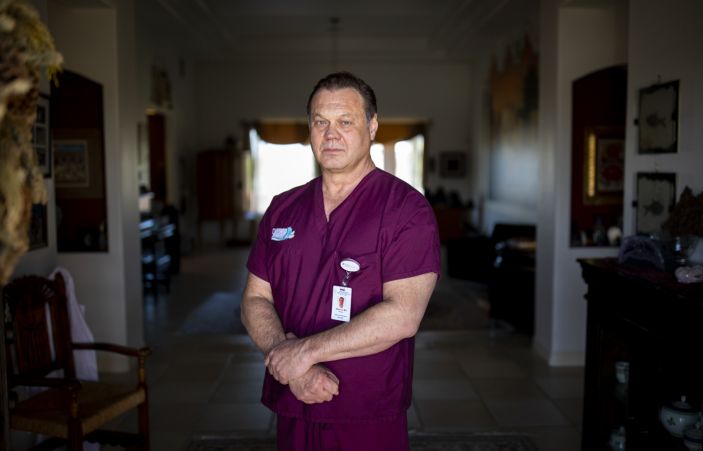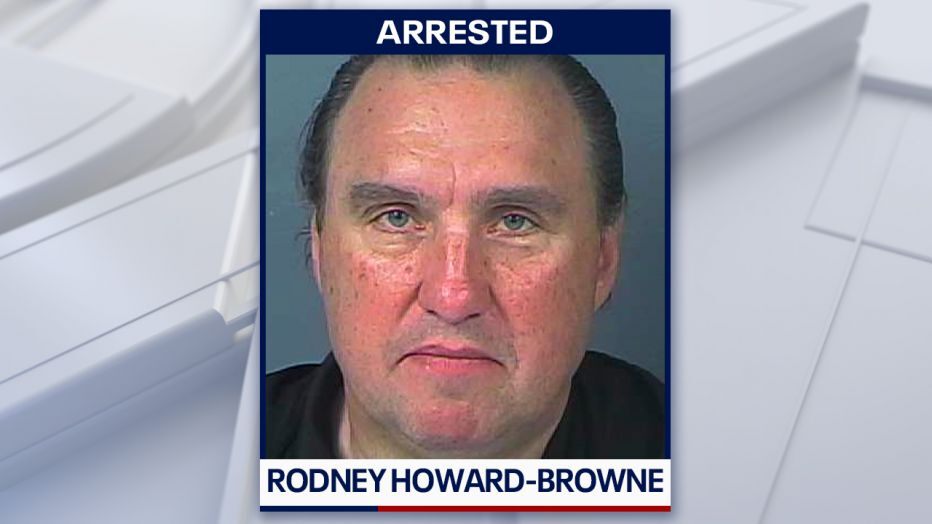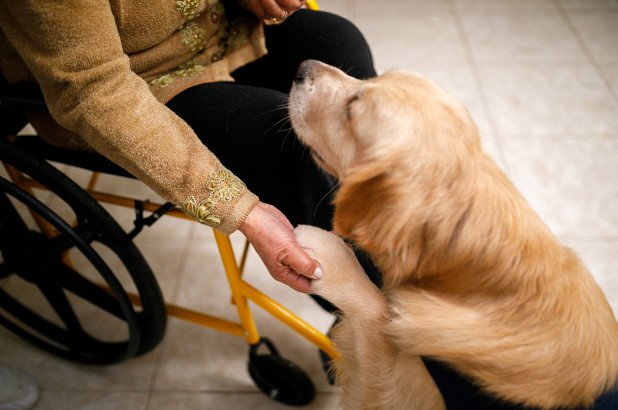Fast and Furious film ‘F9’ pushed back a year due to coronavirus
Universal Pictures is moving back the release of the ninth Fast and Furious film by a year amid the coronavirus outbreak. The studio on Thursday said that “F9” will now open on April 2, 2021. It had been previously scheduled to open on May 22, 2020.
The Fast and Furious movies are always big earners at the domestic and international box office and the absence of “F9” will impact the 2020 box office in a major way. The past two films have made over $1 billion. It is the first major summer movie to be delayed because of the outbreak.
Thursday also saw the postponement of “A Quiet Place II,” and is just the latest film to be delayed because of concerns about the virus and public safety. The releases of the James Bond film “ No Time to Die ” and “ Peter Rabbit 2 ” were also postponed.
For most people, the new coronavirus causes only mild or moderate symptoms, such as fever and cough. For some, especially older adults and people with existing health problems, it can cause more severe illness, including pneumonia.
Photo Credit: Jason Kempin/Getty Images for Universal Pictures)
Pentagon looking to provide up to 100,000 body bags for civilians in virus outbreak
WASHINGTON (Reuters) – The Pentagon is looking to provide up to 100,000 body bags for use by civilian authorities as the coronavirus outbreak worsens in the United States with a high death toll expected in coming weeks.
The Federal Emergency Management Agency has requested 100,000 such bags to the U.S. Department of Defense, a Pentagon official told Reuters on Wednesday.
The Defense Logistics Agency (DLA) is working with the current contractor on additional capacity, the official said.
The initial delivery will come from DLA stocks as the contractor ramps up production, according to the official, who spoke on condition of anonymity. The DLA does not yet have a specific delivery date request from FEMA, but the agency wants the bags as soon as they are ready.
Bloomberg had reported earlier that the Pentagon was looking at buying more body bags and that it will draw some initially from a stockpile of 50,000 that it maintains.
A FEMA spokesman cited by Bloomberg said that the agency was making “prudent” plans for future needs, which included preparations for “mortuary contingencies” from U.S. states.
The Troop Support unit of DLA is responsible for managing the Pentagon’s stockpile of the green nylon, 94-inch by 38-inch body bags, which are normally used in war zones.
The development comes as the United States is looking at an increasing number of deaths from the coronavirus outbreak, with Reuters’ tally showing more than 4,500 deaths and over 200,000 infections in the country.
President Donald Trump and his top healthcare advisers urged Americans to follow strict social distancing measures ahead of a “tough two weeks” that could see at least 100,000 deaths from the coronavirus.
Photo Credit: reuters
Pentagon says it still hasn’t sent ventilators because it hasn’t been told where to send them
Washington (CNN)Despite having committed to transferring 2,000 ventilators in military stocks to the Federal Emergency Management Agency and the Department of Health and Human Services to fight the coronavirus outbreak, the Pentagon has not shipped any of them because the agencies have not asked for them or provided a shipping location, the Pentagon’s top logistics official said Tuesday.In order to ship the badly needed equipment, the Defense Department has to be given a location to send them by civilian authorities who have to decide where the items are most needed.”There was discussion with HHS on where to send them. And then they said hey wait, we’re trying to take a look at the demand that’s required, and so we were asked to just wait while there was just some sorting through on that. And I won’t speak on behalf of them, but we were in a position to provide 2,000,” said Lt. General Giovanni Tuck.Tuck said he had no details on the HHS decisions, but added that “we haven’t provided any, because as of last night, we were asked to just hold on the ones that we have, and then we will push them when they’re ready for them.”
He emphasized there are 1,000 ventilators fully ready to be shipped as soon as the Pentagon gets a destination of where to send them. The other 1,000 can also be assembled and shipped within days of getting the order he indicated.The uncertainty comes as health experts continue to say there is a serious need for more respirators and ventilators to deal with the surge of coronavirus patients at hospitals across the country. Medical professionals have also asked for help related to testing for the virus but several days after Pentagon officials offered to assist in this area, it remains unclear if they have begun to do so.Civilian Pentagon officials had repeatedly said they are making ventilators and five million N-95 respirator masks available. So far only 1.5 million masks have been shipped by the Pentagon. Another 500,000 are to be shipped within days.But HHS and FEMA have given DoD no indication of when or where they precisely want the other three million items to go.An HHS official told CNN that, “many of the DOD ventilators are deployable ventilators and require special training while the ventilators in the HHS Strategic National Stockpile (SNS) are the types of ventilators commonly used by US hospitals and are better suited for immediate use.”The same official pointed out that other ventilators have been deployed with military deployments, like those aboard Navy hospital ships in California and New York who are treating non-Covid-19 patients.FEMA spokeswoman Lizzie Litzow did not comment on the fact that the Pentagon’s ventilators have not been deployed but said the government is working to ensure “ventilators are shipped to the states in the amount needed to manage the immediate crisis. In the case of ventilators, immediate is defined as requirements necessary to sustain life within a 72-hour window.”On March 17 Defense Secretary Mark Esper told reporters at a briefing that the department is prepared to distribute up to 2,000 ventilators “as needed.””We are prepared to distribute to HHS up to 2,000 deployable ventilators for use as needed. These machines are different from their civilian equivalents and require special training to operate, but we are committed to supporting HHS’s requirements in any way we can,” he said at the time.”The department has made our 14 certified coronavirus testing labs available to test non-DOD personnel as well, and we will soon offer two additional labs for that purpose. We hope this will provide excess capacity to the civilian population,” Esper added.During that briefing, Esper acknowledged that “when you look at the numbers of people that are projected that may need ventilators, 2,000 doesn’t put much of a dent into it, but we can offer what we have.”
Unclear if Pentagon has tested civilians
Additionally, it remains unclear if the Pentagon has tested any civilian patients for the virus more than two weeks after Esper said it had offered to do so.”We are not maxing our capacity in our labs around the world,” Joint Staff Surgeon Brig. Gen. Paul Friedrichs said at a Pentagon press conference last week, adding that the Defense Department is currently operating 16 labs capable of conducting the test.
“We have not received an RFA, a request for assistance, from HHS that I’m aware of,” he said. “But we do have capacity in some of our labs. We’ve identified that to HHS.”Several hours after the Pentagon said it had not received a request for assistance with testing, HHS told CNN it had since made an “initial request for assistance” from the Defense Department.”HHS has submitted an initial request for assistance to DOD and both departments are in the process of assessing the capabilities to partner on testing,” the statement from HHS said.CNN has reached out to the Pentagon for an update but has not yet received a response.Meanwhile, the military continues to grapple with an increasing number of positive cases within its ranks.As of Tuesday morning, 716 US service members had tested positive for the virus. and The first military death related to Covid-19 was announced on Monday.The surging cases are the latest sign that the virus has become a national security challenge.
Beyond its spread within the armed forces, top US commanders around the globe had previously expressed concerns that as allies shut down borders and travel, there’s a risk that military readiness may start degrading, according to several defense officials.Still, the Department of Defense stressed in a news release Monday that it has “adopted dramatic mitigation measures to protect service members, civilian employees, contractors and their families from Coronavirus.””These include mandating social distancing, termination of certain work and training activities and providing testing and care for our community members.”
via: https://www.cnn.com/2020/03/31/politics/pentagon-ventilators/index.html
Photo Credit: CNN
Washington man teaching his dog how to drive leads police on 100 mph chase, wrecks
Washington police arrested a driver this past weekend after he led them on a chase that reached speeds over 100 mph with his dog in his lap.
Police said the unidentified man told them he was teaching the pit bull how to drive, but was steering the 1996 Buick Park Avenue himself.
The unidentified 51-year-old allegedly struck two cars in Seattle and was spotted by police about 40 miles north on I-5. After he refused to pull over, police deployed a spike strip to slow him down, KOMO reported. Part of the pursuit was captured on a highway traffic camera.
Traffic congestion is down considerably in and around Seattle, due to stay-at-home measures in response to the coronavirus pandemic.
He eventually pulled off of the highway and crashed on a side road. Police told CNN that neither he or the dog were seriously injured, and the car suffered only minor damage.
Police booked him on several charges, including DUI, reckless driving, hit-and-run and felony eluding.
via: https://www.foxnews.com/auto/washington-dog-drive-police-wrecks
Photo Credit: Washington State Patrol
The Dead Alligators From ‘Tiger King’ Once Belonged to Michael Jackson
Tiger King: Murder, Madness and Mayhem is, as promised, crazy. The number of connections to Hollywood that have been revealed in its wake — to Britney Spears, Shaquille O’Neal and Beyoncé — is its own separate can of crazy.
Well, here’s another: Joe Exotic’s alligators — who were “boiling alive in a towering inferno,” as he put it, when someone allegedly burned down the Joe Exotic TV studio and reptile enclosure at G.W. Zoo — once belonged to Michael Jackson.
The Michael Jackson connection actually headlined the news when The L.A. Times reported on the arson in 2015, with Joe Maldonado-Passage (né Schreibvogel) confirming “seven alligators and a crocodile died in the March 26” fire.
John Finlay, ex-husband (or “husband”) to Joe, confirmed the gators’ former owner on Lights Out with David Spade. “One of the previous managers had gotten us Michael Jackson’s alligators from Neverland Ranch,” he said. “We had gotten some other ones from friends and stuff.”
When ET spoke with Finlay, he named working with the large reptiles — which he says were far more dangerous than the tigers — as a good memory from his time at the zoo. “They were the more fascinating animals of any of them,” he told Kevin Frazier, revealing that he might return to working with gators “in the future.”
Just don’t expect Finlay to become the Gator King anytime soon. “No, no, no. There are many more skilled people out there than me! I just go by Gator,” he said. “My nickname at the park was Gator Man, but since I left the park, I dropped the ‘Man’ part and it’s just strictly Gator.”
Photo Credit: Netflix / Dave Hogan/Getty Images
Louisville judges now putting defiant COVID-19 patients on house arrest
LOUISVILLE, Ky. — Some people in Louisville are being diagnosed with COVID-19 and then refusing to stay home, defying orders from doctors, city and state leaders. Now, judges are issuing court orders in attempt to hold them legally liable and Metro Corrections officers are being asked to distribute the GPS monitoring gear.
On Monday, an officer was sent home after reporting to work with an increased temperature. That officer was in contact with one of the house-arrest COVID-19 patients last week. He is hoping to be tested for the virus this week.
Court documents obtained by WHAS11 FOCUS investigative team reveal Jefferson County citizens are being court ordered to stay at home.
One male patient, despite being positive for coronavirus went shopping March 21, according to court documents.
The coronavirus , which causes the disease COVID-19, is contagious and considered a federal “quarantinable” communicable disease.
Under state law, Louisville Metro Public Health and Wellness has the authority to issue an “order of isolation.” The order and evidence is presented to a circuit Judge who then signs or denies the order.
The sheriffs serve the order and Louisville Metro Department of Corrections Officers place a GPS monitoring device on the patient. If the patient leaves their home or violates the conditions of the detention they could be arrested or face charges.
There are concerns about officers who must come in contact with the patients to hold them accountable.
FOP Lodge 77 spokesperson Tracy Dotson said, “We are more than capable of handling anything the city throws at us, but in order for us to be confident in doing that, we need to know that we’re being taken care of as much as possible. We don’t think it’s too big of an ask to be tested and to do the proper equipment that we need to do this job and to do the ask that the city and the judges are asking us to do.”
Dotson said the officers who are serving the HIP equipment are not adequately protected while coming into direct contact with the patients. They are given a mask, goggles and chemical-resistant coverall suit.
But Dotson says that isn’t enough. He wants the officers to be tested for COVID-19 after coming in contact with the infected patients. Right now, the officers are continuing to work their shift normally.
“If there was an issue it could spread rapidly. There is no particular assignment or duo of officers are in charge of this one particular thing,” he explained.
The officer now at home in self-isolation is hoping to be tested for COVID-19 sometime this week.
Photo Credit: ksdk.com
Woman, 90, dies from coronavirus in Belgium after refusing a ventilator and telling doctors: ‘I had a good life, keep this for the younger’
A 90-year-old coroanvirus patient has died in Belgium after selflessly refusing a ventilator and instructing doctors to ‘keep this for the younger’ patients.
Suzanne Hoylaerts from Binkom, near Lubbeek, was hospitalised on March 20 when her condition rapidly deteriorated after contracting COVID-19.
It comes amid a global shortage of ventilators during the coronavirus pandemic, a key piece of equipment in the battle against the respiratory disease.
Hoylaerts sought medical attention after suffering from a lack of appetite and shortness of breath. She was admitted to hospital where she tested positive for the virus and was placed in isolation, meaning her daughter was unable to visit.
She reportedly told doctors at the hospital: ‘I don’t want to use artificial respiration. Save it for younger patients. I already had a good life.’
Hoylaerts passed away two days after she was hospitalised, on March 22.
Her distraught daughter Judith told Dutch newspaper Het Laatste Nieuws: ‘I can’t say goodbye to her, and I don’t even have a chance to attend her funeral.’
According to Judith, the family were baffled as to how their mother could have contracted the virus as she had stayed at home and was complying carefully with lockdown measures.
Belgium has now recorded 705 deaths according to the latest official toll.
The country’s toll on Tuesday represented a jump of nearly 200 fatalities from that given the previous day, which stood at 513.
The small EU country, with a population of 11.4 million, now has 12,775 cases of persons tested positive for COVID-19, of whom 4,920 have been hospitalised, including 1,021 in intensive care.
A 12-year-old girl Belgian girl confirmed infected with the coronavirus became the youngest person in Europe to die from the disease, officials said today.
Ventilators are crucial to helping severely ill coronavirus patients to recover. They are machines which pump oxygen in someone’s lungs when they become unable to breathe on their own.
Photo Credit: dailymail.co.uk
Frightened Doctors Face Off With Hospitals Over Rules on Protective Gear
Just after 6:30 on a recent morning, Dr. Henry Nikicicz, an anesthesiologist in Texas, finished an emergency intubation of a man in his 70s who was suffering severe respiratory distress. Then the doctor’s own trouble began.
Stepping out of an elevator after finishing the procedure, Nikicicz put his respirator face mask back on when he saw a group of people walking down the hallway toward him — reflexively trying to protect himself, and them, should anyone have been infected by the coronavirus.
In the days that followed, Nikicicz said, he was told that his job was at risk because policy at the hospital where he works, University Medical Center in El Paso, prohibited the use of protective masks in the hallways.
“Wearing that mask is essential for me,” Nikicicz, 60, who has asthma and hypertension, said in an interview.
After he refused to back down, Nikicicz was removed from the schedule, effectively suspending him from work without pay.
As infection from the coronavirus spreads — and with it, fear — hospitals are facing extraordinary tension between health care providers and administrators. The tension comes against the backdrop of sickness and death for health care professionals, in China, Italy and Spain, and now more than 200 health care workers sick in New York.
Mostly, staff and administrators are fighting over masks, whether they should be worn outside of treatment rooms, and which kind of masks — thinner surgical ones, or heavier respiratory masks. Should they be worn at all times? Only in procedures or while visiting patients? There is also some quibbling over testing and isolation: whom to test and when, and whom to isolate, given limited bed space? Whom to send home if a staff member has symptoms, and whom to require to work?
Some hospitals allow masks outside of treatment rooms and some even make them mandatory. But a number of others say they aren’t necessary at all times and don’t allow them. The Centers for Disease Control and Prevention’s guidance has changed several times. Currently, it says medical professionals don’t need to wear masks all the time. It also says that if there’s not enough protective equipment available, homemade solutions like bandannas or scarves are OK for health care workers to wear.
On Tuesday, Dr. Anthony S. Fauci, a leading member of the federal government’s coronavirus response task force, told CNN that the CDC was considering another change: It is reviewing its guidelines on whether the general public should wear masks.
Amid the confusion, furious and terrified, doctors and nurses say they must trust their own judgment. Administrators counter that doctors and nurses, motivated by fear, are writing their own rules.
Some doctors believe that hospital administrators are simply trying to protect their institution’s image and don’t want to be seen as a facility where dangerous germs are rampant.
When Nikicicz insisted on wearing a mask, he received a text from his boss, the chief of anesthesia, accusing him of overreacting. The text read: “UR WEARING IT DOWN A PUBLIC HALL. THERES NO MORE WUHAN VIRUS IN THE HALLS AT THE HOSPITAL THAN WALMART. MAYBE LESS.”
On midday Monday, the hospital confirmed in a statement that “Dr. Nikicicz has been removed from his rotation/work schedule for insubordination.” But then, later in the day, after the hospital was asked for comment, Nikicicz said he was told by his boss that he had been reinstated and could wear a surgical mask around the hospital and an N95 for procedures.
The circumstances leading to tension vary around the country.
An emergency room doctor, Dr. Ming Lin, wrote on Facebook that he was fired Friday from his job at PeaceHealth St. Joseph Medical Center in Bellingham, Washington, after making public his concerns about insufficient protections and testing at the hospital.
The hospital said it had no comment about Lin’s dismissal.
Administrators at a different hospital in Seattle, the Cherry Hills campus of Swedish Medical Center, threatened to indefinitely suspend an anesthesiologist, Dr. Oliver Small, for wearing a surgical mask when not directly involved in patient care, such as walking the hallway.
“He got called into meetings with administration of Swedish because they don’t want to panic employees into thinking they need to wear masks for protection,” Small’s wife, Jessica Green, wrote on Facebook last week. “He is wearing a surgical mask as a precaution in case he is an asymptomatic carrier of COVID, as many people are, and he does not want to risk infection in uninfected patients.”
The hospital asked him to attend a meeting in which administrators told Small he could take off the mask or stop coming to work, Green wrote, adding, “What is wrong with our health care system????!!!”
Small confirmed the story but said that the hospital had since changed its position on masks and that he was “very pleased” by the outcome. Since the incident, the hospital now allows “universal masking” — the ability to wear masks in any patient area.
The hospital said it had no comment about Small. It said it has changed its policy as “we learn more about this disease.”
“Despite a limited body of evidence showing its effectiveness, and while keeping a strong focus on reuse and conservation, we have decided to implement universal masking as a reasonable strategy, as long as our mask supplies allow,” the hospital said in an email statement.
The intensifying tension falls into a larger context: In recent years, doctors have felt increasingly like employees working for cost-cutting companies putting profit ahead of medicine. That tension appears to have found an almost volcanic moment with the coronavirus pandemic.
“There’s been a loss of autonomy and a denigration going on for a couple of decades now. We’ll take a lot,” said Dr. Christopher Garofalo, a family doctor in North Attleboro, Massachusetts, who holds several regional leadership positions in medicine, including serving as the state’s delegate to the American Medical Association.
More than half of physicians now are employees of hospital systems or big groups, he said, a systemic change that has left doctors feeling less empowered and frustrated.
COVID-19, he said, “is causing it to erupt.”
Doctors at a handful of institutions provided communications from administrators that show a faceoff with doctors.
An email sent from a midlevel manager at the Cleveland Clinic, one of the nation’s elite hospitals, to a group of doctors warned them not to “go rogue” and wear surgical masks around the hospital.
“These are emotional times, and we need to control our emotions,” it said.
Dr. Jim Merlino, a top administrator and the chief transformation officer at the Cleveland Clinic, said the language was “not good communication.”
He also said that while he was aware that some doctors at his institution and around the country were frustrated, he contended the vast majority were not.
“People are afraid and what we have to do is set the record straight: It’s OK to be afraid, but let’s accept we’re making the right decisions,” Merlino said. “We have to tamp the fear down. Otherwise we’ll never survive this.”
He said decisions should be made based on clear scientific evidence. The Cleveland Clinic interprets that current evidence as concluding that it is not necessary to wear surgical masks unless dealing with a high-risk situation.
But other administrators interpret the evidence differently. Stony Brook University Hospital on Long Island just changed its guidelines to require such masks.
“We are now recommending that all caregivers wear a surgical mask with ear loops while at work. This practice should be used in open hospital spaces,” the new guidance reads.
via: https://currently.att.yahoo.com/news/frightened-doctors-face-off-hospitals-191355544.html
Photo Credit: Ivan Pierre Aguirre/The New York Times
Tampa megachurch pastor arrested after leading packed services despite ‘safer-at-home’ orders
TAMPA, Fla. – The pastor of a Tampa megachurch is facing charges after refusing to close its doors despite a “safer at home” order in effect in Hillsborough County, meant to stop the spread of COVID-19. The sheriff says up to 500 people were in attendance at Pastor Rodney Howard-Browne’s Sunday services.
Sheriff Chad Chronister and State Attorney Andrew Warren on Monday announced that an arrest warrant had been issued for Pastor Howard-Browne. He faces misdemeanor charges of unlawful assembly and violation of public health emergency order.
The River at Tampa Bay Church held two services Sunday, Chronister said, and even offered bus transportation for those services. The church’s livestream showed a packed crowd cheering and applauding.
“They have access to technology allowing them to livestream their services over the internet and broadcast to their 400 members from the safety of their own homes, but instead they chose to gather at church,” Chronister said during a press conference.
Howard-Browne, 58, was taken into custody Monday afternoon in Hernando County, where he lives, and released 40 minutes later after posting a $500 bond.
His attorney later took issue with the Hillsborough County order, claiming it allows companies like Amazon to operate while shutting down churches.
“Not only did the church comply with the administrative order regarding six-foot distancing, it went above and beyond any other business to ensure the health and safety of the people,” insisted Liberty Counsel founder and chairman Mat Staver. “Contrary to Sheriff Chronister’s allegation that Pastor Howard-Browne was ‘reckless,’” the actions of Hillsborough Country and the Hernando County Sheriff are discriminatory against religion and church gatherings.”
Friday, Sheriff Chronister said, deputies had tried to speak to Howard-Browne on at least two separate occasions about the “dangerous environment” the church was creating. He said HCSO command staff went to the east Tampa church, but they were advised by church leaders and legal staff that Howard-Browne was refusing to see them and also refusing to cancel the Sunday church services.
“I think it’s unfortunate that the pastor here is hiding behind the First Amendment,” State Attorney Warren offered. “One, it’s absolutely clear that emergency orders like this are constitutional and valid. Second of all, leaders from our faith-based community across this country have embraced the importance of social distancing.”
On Sunday, Howard-Browne defended his decision to keep the church open in a video posted to his YouTube channel, claiming the building had the technology to eradicate any virus.
“We brought in 13 machines that basically kill every virus in the place,” Howard-Browne said. “If they sneeze it shoots it down like at 100 miles per hour and it will neutralize it in a split second.”
The church provided the following statement on their website:
“We feel that it would be wrong for us to close our doors on them, at this time, or any time. In a time of crisis, people are fearful and in need of comfort and community.”
Chronister stressed that the warrant was not an attack on religious freedom, and noted there are other Tampa Bay-area churches who are following the social distancing guidelines set by the CDC. He said his concern now is whether the novel coronavirus may spread following the crowded services.
“I was appalled and also frightened at the fact that those individuals [were] thinking and believing they are doing the right thing. How many people are they going to infect if they have COVID-19?” he asked. “There is nothing more important than faith especially during a pandemic, but like every other church here in the Bay Area, do it responsibly.”
During his announcement of the arrest warrant, other leaders from local churches also joined him. Pastor Ken Whitten from Idlewild Baptist Church pointed out that quarantining is mentioned in the Bible.
“It was practiced by people,” he said. “The issue here is not religious freedom. Churches are not the ones being singled out. Everything is shut down. There is no basketball. There is no hockey. All of us our doing our part. I’m a pastor that believes God heals…this is not a faith issue. This is a responsible friend issue.”
RELATED: Coronavirus cases in Florida increase by 500 to over 5,000
Reverend Thomas Scott of 34th Street Church, a former chairman of the Board of County Commissioners and Tampa City Council member, said his church began streaming online and on Facebook.
“We value the importance of the laws of the land and we value the importance of social distancing, and more importantly, protecting our parishioners — make sure they are not in harm’s way and spreading this deadly disease throughout the community,” he said. ” To us, COVID-19 and social distancing is very important. It’s also important for the religious community to govern themselves, according to the laws of the land.”
Chronister and Warren also appealed to River parishioners, asking them not to gather in their pastor’s absence. The state attorney even quoted Mark 12:31 in making his point.
“There is no more important commandment than to love thy neighbor as thyself,” Warren preached. “Loving thy neighbors is protecting them, not jeopardizing their health by exposing them to this deadly virus.”
Photo Credit: HCSO
Dogs are being trained to sniff out coronavirus
Extensive testing for the novel coronavirus is a crucial weapon against the pandemic, as seen in countries like South Korea, which was able to significantly flatten the curve and Germany, which is testing an average of 500,000 people a week. COVID-19 screening can help authorities get a better picture of the number of active cases in hot zones and provide early care to everyone testing positive, especially the elderly and those with preexisting health conditions.
The problem many countries have to face is that there aren’t enough test kits to go around. But what if dogs could sniff out people who are infected and pinpoint them in a crowd?
The charity Medical Detection Dogs partnered with Durham University and the London School of Hygiene and Tropical Medicine (LSHTM) on a trial to see if dogs can sniff out COVID-19 patients.
The charity has trained dogs to spot malaria, cancer and Parkinson’s patients, as each disease has its own scent, BBC reports. LSHTM head of disease control Professor James Logan said that research proved dogs could detect malaria infections by odor with a level of accuracy “above the World Health Organization standards for a diagnostic.”
That doesn’t mean good boys will be as good as recognizing a particular smell for the novel coronavirus, of course. But if they are, they could be used in all sorts of cases to sniff out potential carriers within large groups of people. The dog test would then be confirmed by an actual COVID-19 test.
The dogs could be ready in six weeks, assuming the trial yields positive results. However, this method of testing will be of limited use, considering it can’t be scaled to meet current needs. But the dogs might be useful down the road to prevent the reemergence of COVID-19 and catch future outbreaks early.
The charity is studying ways to “safely catch the odor of the virus from patients,” according to its boss, Dr. Claire Guest. It’s not just safety for humans, but also from dogs. A 17-year-old Pomeranian tested positive in Hong Kong. Initially, it wasn’t clear whether the dog had the disease, but successive tests showed he developed antibodies for the infection. The dog was released back home after testing negative, but then died of old age.
Separately, a French medical body urged per owners to wash their hands after petting them, as the risk of catching the new coronavirus from animals has yet to be ruled out.
via: https://nypost.com/2020/03/30/dogs-are-being-trained-to-sniff-out-coronavirus/
Photo Credit: nypost.com




